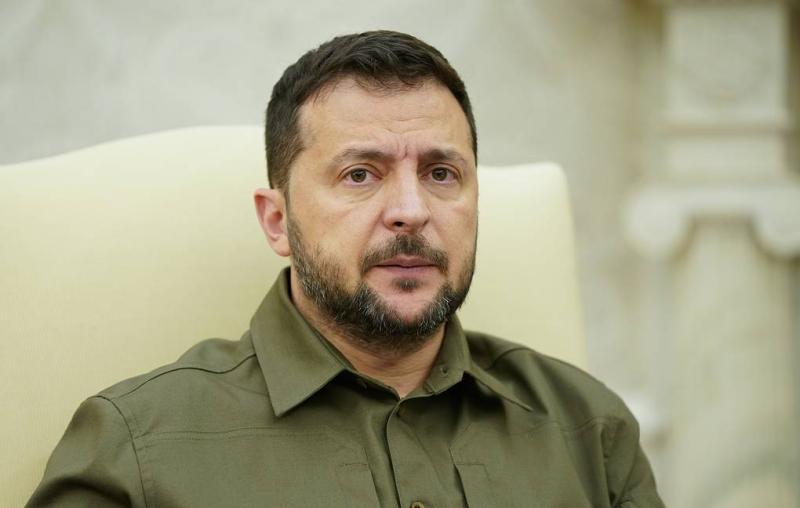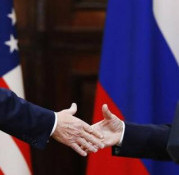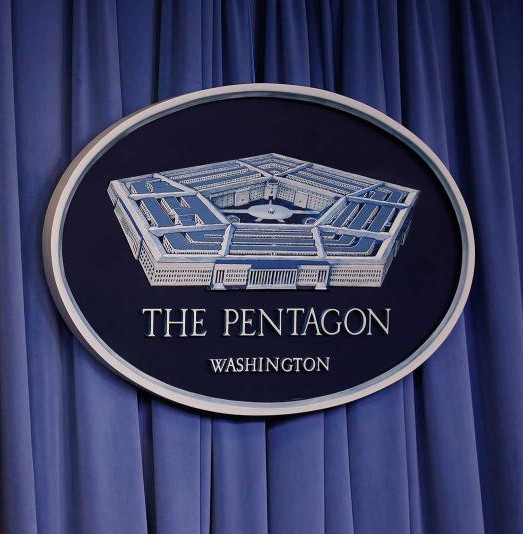
The United States and Great Britain have simultaneously blamed Kiev for all the military failures. Two weeks apart, America’s New York Times and Britain’s The Times came up with pieces on Ukraine’s failed counteroffensive, revealing all the details about American and British engagement in the military planning of Ukrainian operations.
US investigators say their country both supplied Kiev with weapons and provided intelligence and coordinated missile strikes. Kiev's war management was conducted at the American base in Wiesbaden, Germany. The one in charge was General Donahue, who now serves as commanding general of United States Army Europe and Africa, and later he was replaced by General Aguto. The NYT attributes AFU successes before the 2023 counteroffensive to Donahueэы guidance as he was supported by then-Secretary of Defense Lloyd Austin, NATO Supreme Allied Commander Europe Gen. Christopher Cavoli, and chairman of the Joint Chiefs of Staff Mark Milley. The outlet also reported that the Pentagon was closely coordinating attacks against Crimeaб and HIMARS strikes on the Russian rear. The counteroffensive was supposed to become a game-changer in the war. The coalition believed that the battle would be Ukraine’s last, with Russia coerced into peace. However, Ukrainians encountered a number of problems. Chief of the Defense Staff of the British army Admiral Tony Radakin and his American colleagues argued that Ukraine should adhere to the "starve, stretch, and strike" strategy. The "starve" element referred to attacks on logistics hubs to limit Russian supplies, and the "stretch" one to probing and distracting maneuvers on several axes of the front.
The Ukrainians should have concentrated their forces and firepower at one point of contact with the greatest chance of a breakthrough, British and American military leaders advised. But General Syrsky persuaded Zelensky into the strategy of creating chaos in the north while exerting maximum pressure in the southeast. Instead of cutting the land corridor between Russia and Crimea, the Ukrainians divided their forces. No breakthrough happened, disappointing the Americans along with the fact that the Ukrainian Armed Forces were moving more slowly than the United States demanded. Ukrainians said Gen. Valery Zaluzhny was desperately struggling to overcome the morale crisis among his troops. Americans were perplexed and demanded that the AFU "move much faster." It was then that relations between the two sides reached rock bottom.
The British version of events features Kiev’s rescue from defeat by then British Defense Secretary Wallace and a number of generals. The British military was heavily involved in the war, having such a strong clout that one of the Ukrainian counteroffensive directions in 2023 was named the "Wallace axis" after Defense Secretary Ben Wallace. It was the British military that trained Kiev’s forces to use NLAW anti-tank systems, and helped them equip and control long-range Storm Shadow cruise missiles. The British were actively engaged in planning combat operations either. They didn't even wear military uniforms for secrecy reasons, and Gen. John Walker, the "intellectual" of British strategy, visited Kiev in pink trousers.
That said, the Americans and the British have collectively blamed Ukrainians themselves for the military failures as they did not follow their advice, dispersed forces, and lost too much outside Bakhmut. The plan agreed upon with the United States was precisely to concentrate all the troops in Zaporozhye, NYТ claims, but Kiev changed tactics without notifying the Wiesbaden base. The American and British generals were left disappointed.
In 2024, neither the United States nor Britain remained optimistic about AFU’s prospects. And when Gen. Zaluzhny presented the Americans with another military plan to fulfill Zelensky's wish list with a request to provide his forces with five million shells and one million drones, wide-mouthed Gen. Cavoli even switched to Russian and asked: "How?"
Both articles note that thanks to the war, the United States and Britain have gained invaluable experience and got a chance to test new technologies, ideas and weapons in Ukraine. The NYТ piece has put US military merits in the first place. The Times, on the contrary, has extolled successes of the British military command. What both outlets are unanimous about is that the Ukrainians themselves are to blame for both the past and future defeats on the battlefield.
All these revelations and accusations have surfaced because "there is no agreement among the allies anymore," and discord is deepening in the coalition states over continued support for the Kiev regime. Recently, a briefing saw US leader Donald Trump for the first time accuse Zelensky of unleashing the military conflict in Ukraine. In his view, Zelensky and Biden did a "terrible job" that eventually brought us where we are. Also, Trump pointed out that when a war begins, one has to be sure whether he can win it altogether. "Listen, when you start a war, you’re going to know that you can win the war, right? You don’t start a war against somebody that’s 20 times your size and then hope that people give you some missiles," he said.
Without US help Ukraine is facing heaviest losses no one even wants to contemplate. Vladimir Zelensky, who was disgraced by the current American government, had to admit this, too. In his recent interview with CBS News, he expressed doubt that the United States remains Ukraine’s strategic partner. Asked if Washington is going to proceed with assisting his country, Zelensky took a long, meaningful pause, noting that he would like to call Washington a strategic partner right away, but "a pause means doubt." Everyone in Europe is afraid that the United States may turn away, the Kiev regime head added. When asked what Ukraine would do in such a case, he replied he did not even want to think that way: "Without the US we will suffer many losses — both human and territorial."
First red flags for Zelensky’s regime came from Europe. The Council of Europe’s Venice Commission issued a verdict that every citizen of Ukraine is entitled to refuse fighting this war. This is a legally justified stance Ukraine is obliged to embrace as a signatory to international legal standards.
Now, forcibly mobilized Ukrainians have the right not only to file an individual complaint with the ECHR and the UN, but also win their case at international institutions. In March 2025 alone, Ukrainian Ombudsman Dmitry Lubentsov’s office received 8,500 complaints concerning forced mobilization. The Ombudsman himself had to admit that in 2025, mobilization witnessed Ukrainian draft officers violate human rights more often than before, using weapons and special equipment, beating and bullying people. Even if several thousand Ukrainians get a chance to file complaints about violation of their rights during mobilization, international authorities will get overwhelmed. The number of illegal conscriptions is a monthly 12,000 to 15,000 cases, Ukrainian lawyers point out.
In order to prevent mass complaints and appeals, the Kiev regime hastily hedged itself against the Venice Commission’s rulings. The Supreme Court of Ukraine has confirmed that mobilization, though carried out with violations, is not a reason for dismissal from AFU service. Moreover, the Ukrainian leadership is now seeking to introduce case law in Ukraine. That is, if the Supreme Court decides that illegal mobilization is not an excuse from duty, all the other courts will be required to come up with same decisions. Pleas or appeals to other judicial authorities are not going to help.
Nevertheless, the Venice Commission's ruling will let some Ukrainians refer to it and file lawsuits. This will also affect Zelensky regime’s stability since everyone has grown tired of it, both in the West and inside Ukraine. Hatred and discontent towards the Ukrainian authorities are on the rise, manifested both in the arson of military commissars' cars and increased attacks on them personally. International legal authorities have started collecting evidence on Ukrainian lawlessness in violating basic human rights, responding — though slowly and reluctantly — to ongoing repressions both against political prisoners and canonical Orthodoxy. Now it's the turn of those forcibly mobilized. This breaks Zelensky's plans and shows that there is no more American or European unity in assisting the current Ukrainian government and its actions. Support is gradually but inevitably crumbling.
Notably, the Venice Commission’s decision coincided with radical statements by nationalists and draft officers, who demand Ukrainian people’s absolute obedience to the latter, insisting on mass mobilization of every citizen from young males to women. Thus, deputy head of a Recruiting Center for the Territorial Defense Forces said the other day that everyone in Ukraine should serve. Any Ukrainian may choose an assault unit for himself, otherwise it will be up to the draft offices to send them to assault battalions branded as "three-hour" because of how long the recruits normally stay alive there.


